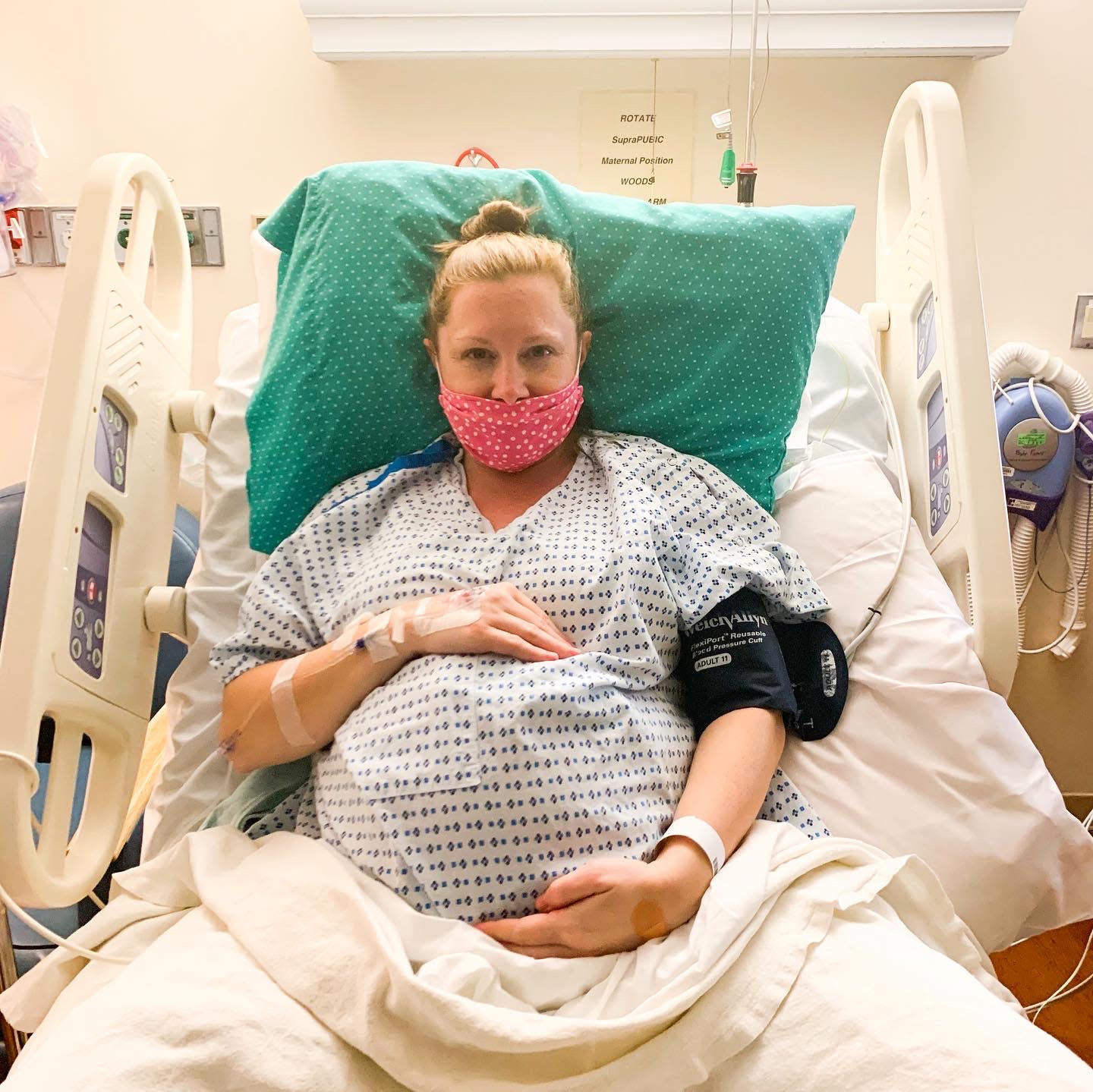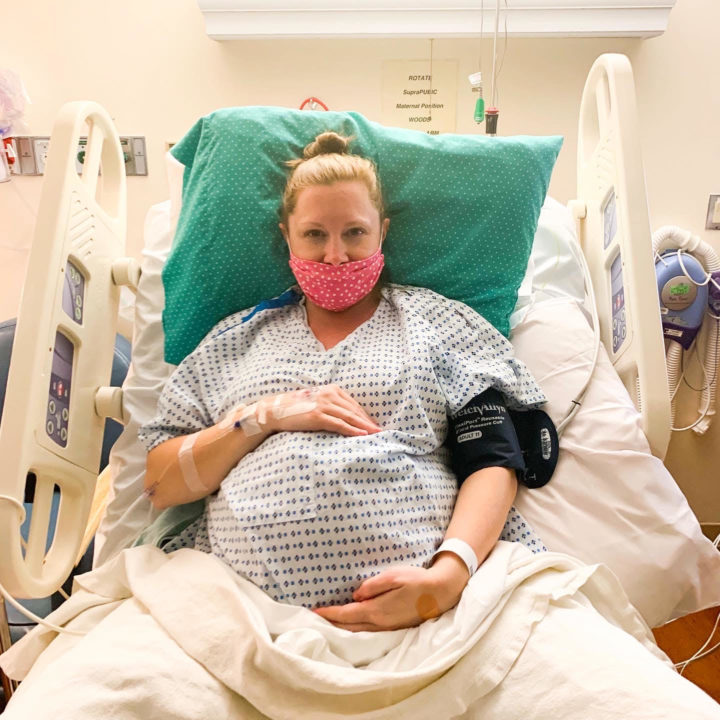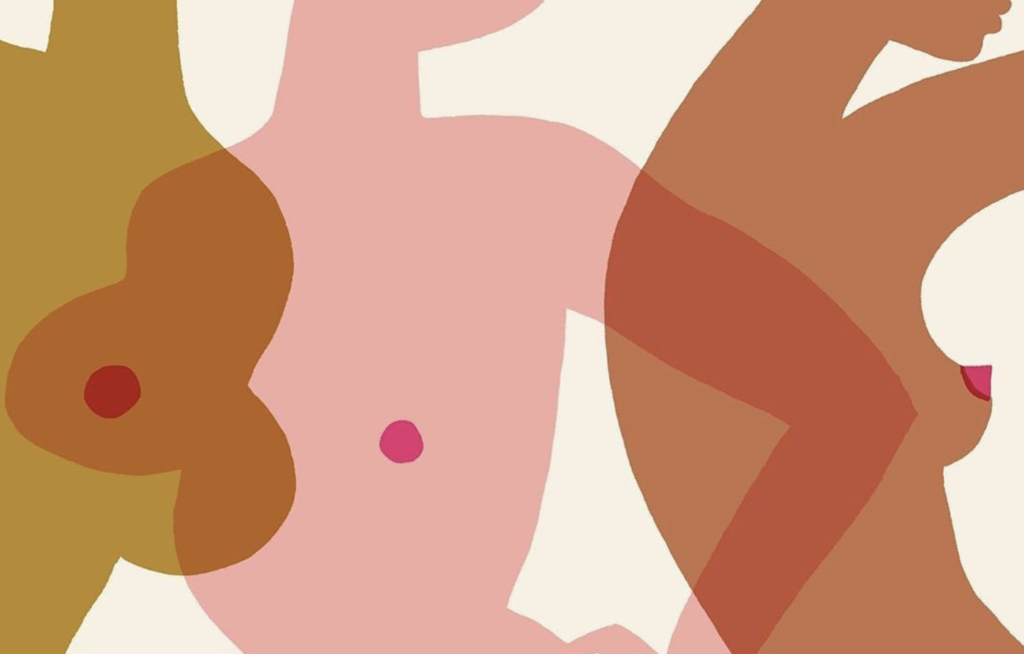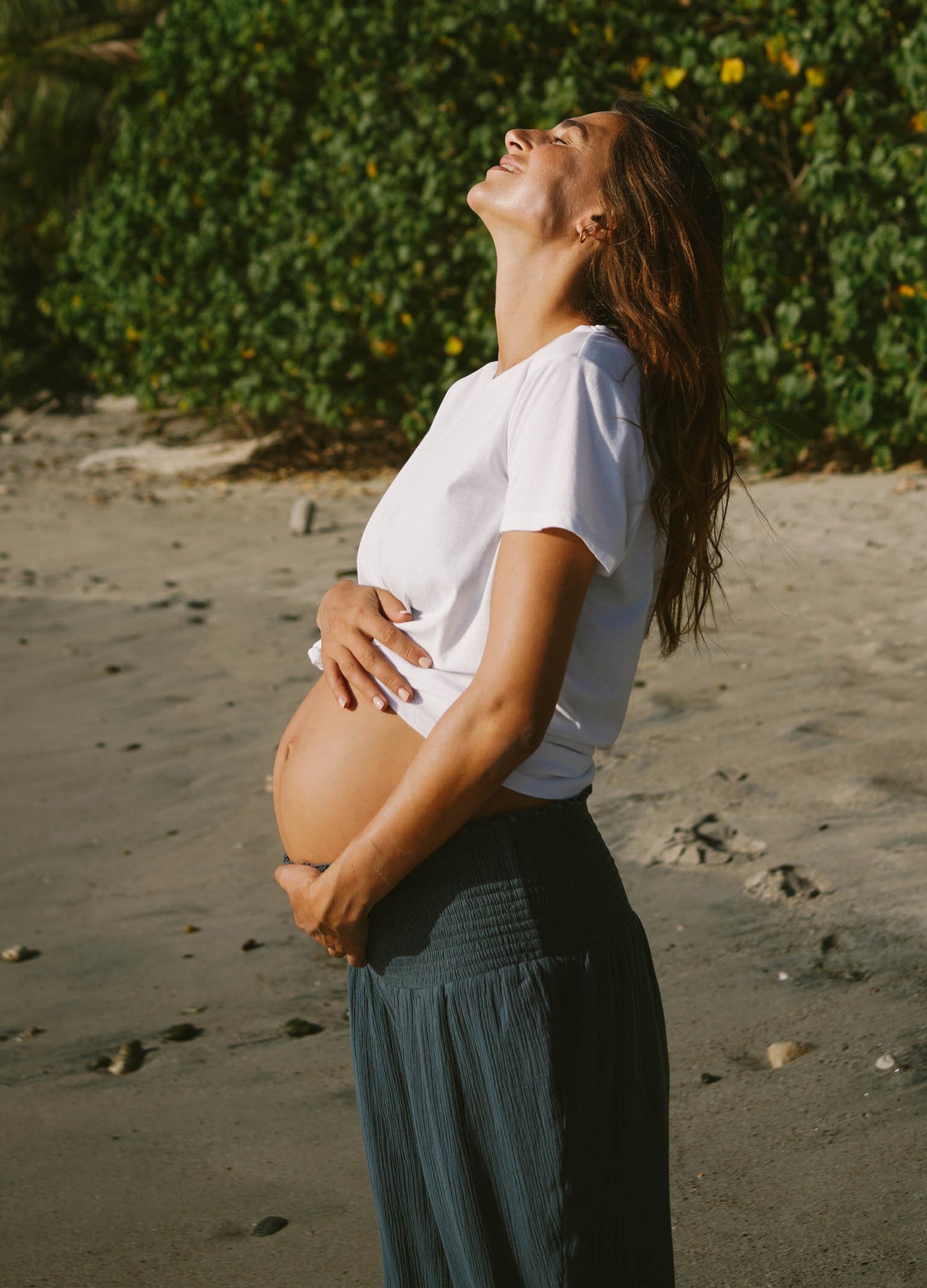When Rachel Miller discovered she was pregnant with her second child, she expected some of the usual stresses. On the verge of turning 40, she knew she’d be considered high risk. She knew that between working and caring for her two-year old daughter, she’d be more exhausted than she was during her first pregnancy. But despite these general neuroses, never did she anticipate that in her last trimester, the world would experience a public health crisis, Covid-19, at a frightening scale no one could have expected.
“Every once in a while it hits me that I’m going to give birth during a global pandemic and it’s so overwhelming, I can’t process it,” says Miller, who is now Zooming with her obstetrics practice and rethinking her postpartum plan since her extended family can’t help out.
For Caitlin Kelly, each day leading up to her March 29 delivery was a question of whether or not her husband could attend the birth. She ended up delivering one day after Governor Cuomo reversed the New York hospital ban to allow labor support, but she had planned for the worst case scenario. “At first I cried really hard,” Caitlin says, “and then I toughened up and said to myself, ‘Here’s the deal. You have no choice. So you can sit around and cry and have a horrible labor and delivery, or you can be a badass and do it alone and have a crazy story to tell.’”
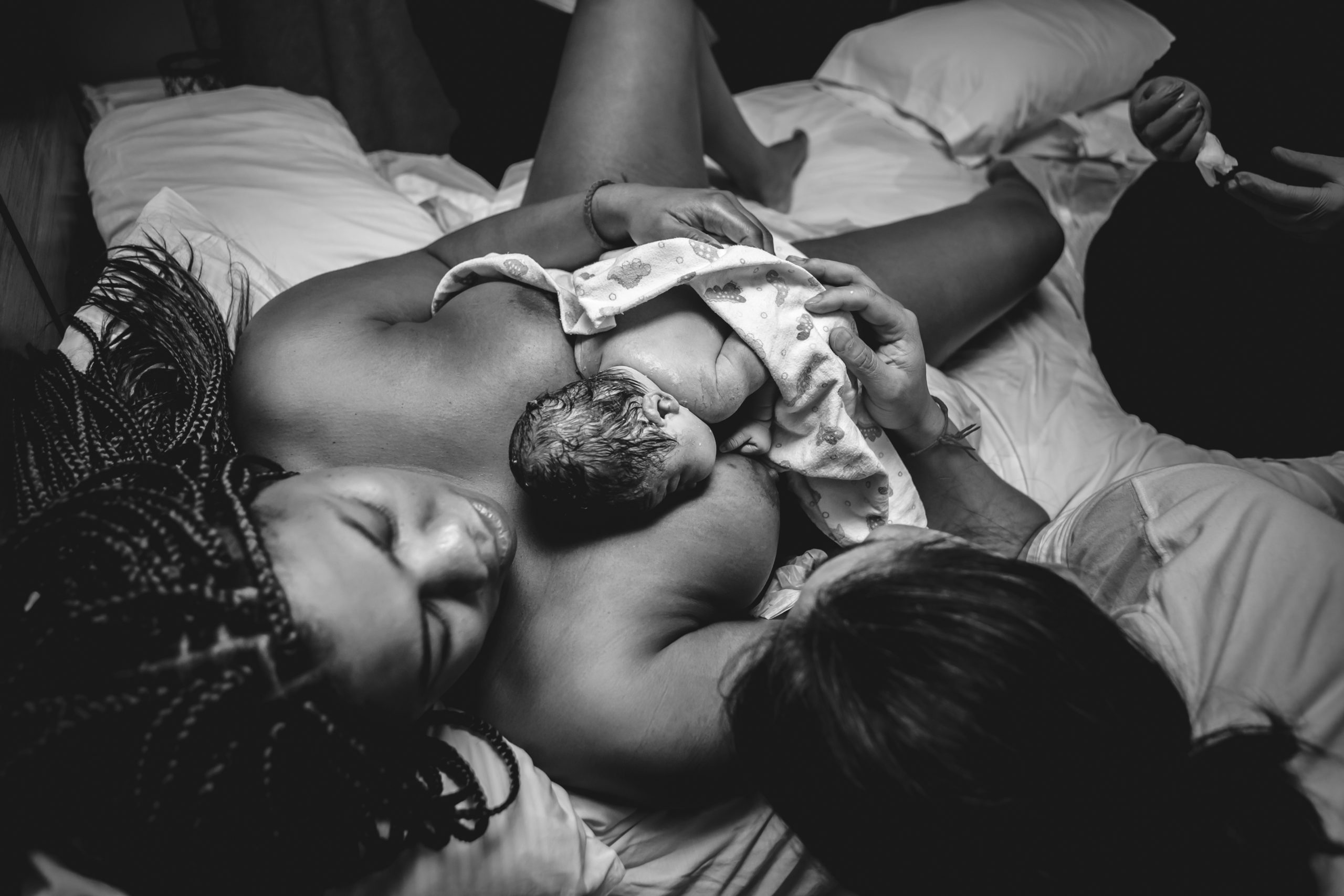 For many women, the arrival of a pregnancy brings about joy, anxiety, and every emotion in-between. But for a select crop of women – those who are pregnant and giving birth during the Covid-19 crisis, there’s an added layer of stress that has impacted every decision they’ve made or will have to make. From the wavering partner policies of hospitals, to the postponement of anatomy scans and key doctors appointments – and forget about a bris, christening, or any arrival celebration – pregnant women and those currently delivering have had to readjust their entire birth and postpartum plans. According to a recent story in the New York Times, thousands of babies have arrived since the beginning of March. Twenty-nine pregnant or delivering women have had suspected or confirmed cases of Covid-19 and have been kept separate from other patients. Yet, even healthy women are experiencing their pregnancy, labor and postpartum period in total isolation, with policies changing by the minute. But women are nothing if not brave, and for these courageous moms-to-be, they’re dialing up their strength and calling on their virtual community to support them during these wild times.
For many women, the arrival of a pregnancy brings about joy, anxiety, and every emotion in-between. But for a select crop of women – those who are pregnant and giving birth during the Covid-19 crisis, there’s an added layer of stress that has impacted every decision they’ve made or will have to make. From the wavering partner policies of hospitals, to the postponement of anatomy scans and key doctors appointments – and forget about a bris, christening, or any arrival celebration – pregnant women and those currently delivering have had to readjust their entire birth and postpartum plans. According to a recent story in the New York Times, thousands of babies have arrived since the beginning of March. Twenty-nine pregnant or delivering women have had suspected or confirmed cases of Covid-19 and have been kept separate from other patients. Yet, even healthy women are experiencing their pregnancy, labor and postpartum period in total isolation, with policies changing by the minute. But women are nothing if not brave, and for these courageous moms-to-be, they’re dialing up their strength and calling on their virtual community to support them during these wild times.
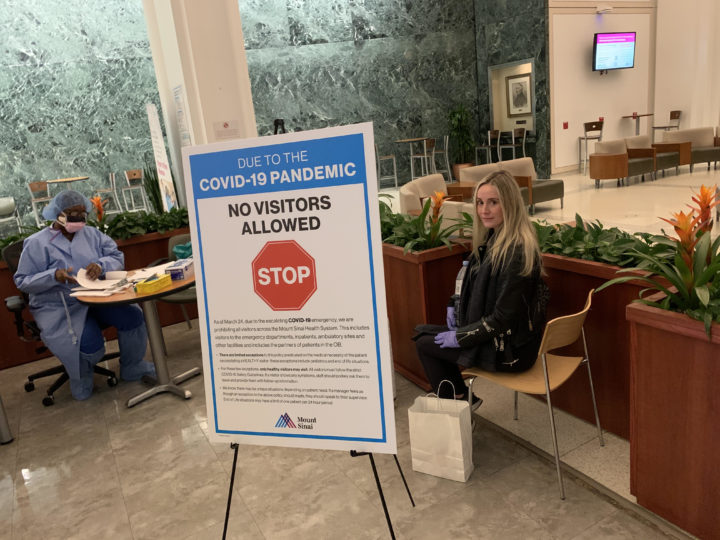
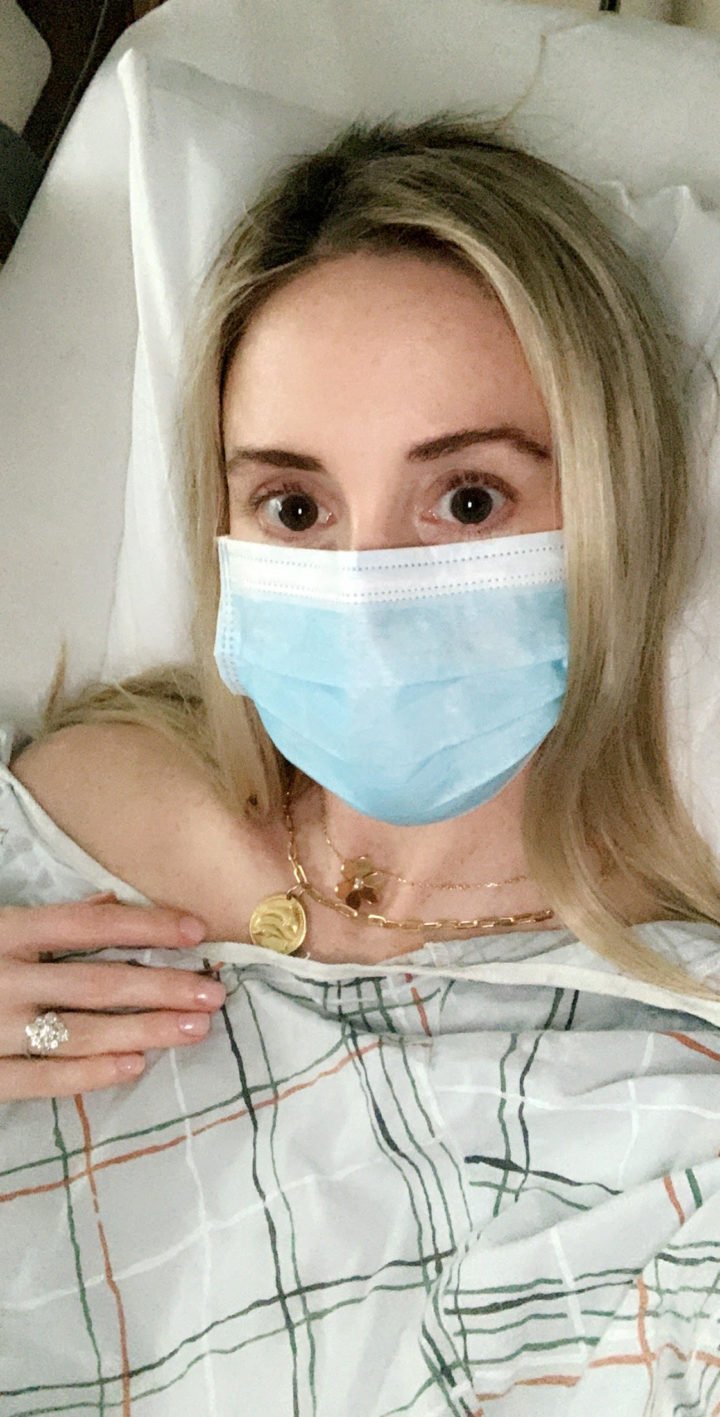
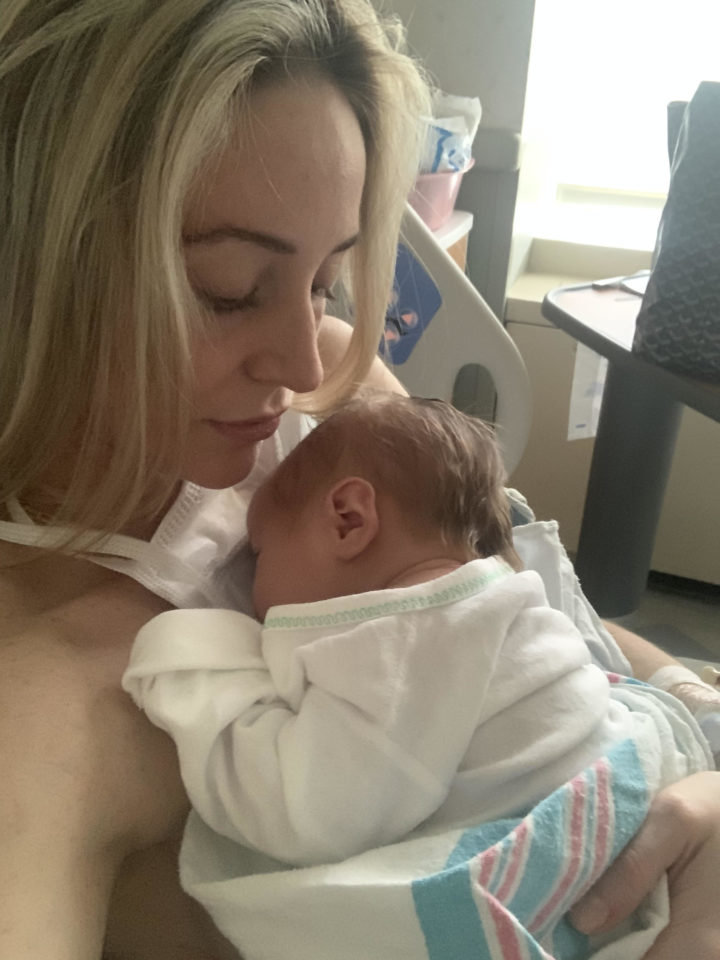
“Everything is changing minute by minute,” says Brandi Sellerz, a Los Angeles-based doula. “What I’m having to do now is navigate how to show up and advocate for these women without being there. I’m offering additional prenatal sessions, I’m on call 24/7 to make sure these women have everything they need as if I were there. It’s really a free-for-all and we all have to be creative. But I’m getting on Facetime, I’m getting on Zoom. I’m doing my job virtually to support. It’s a weird time to have a baby. And none of us saw it coming. It’s totally unexpected.”
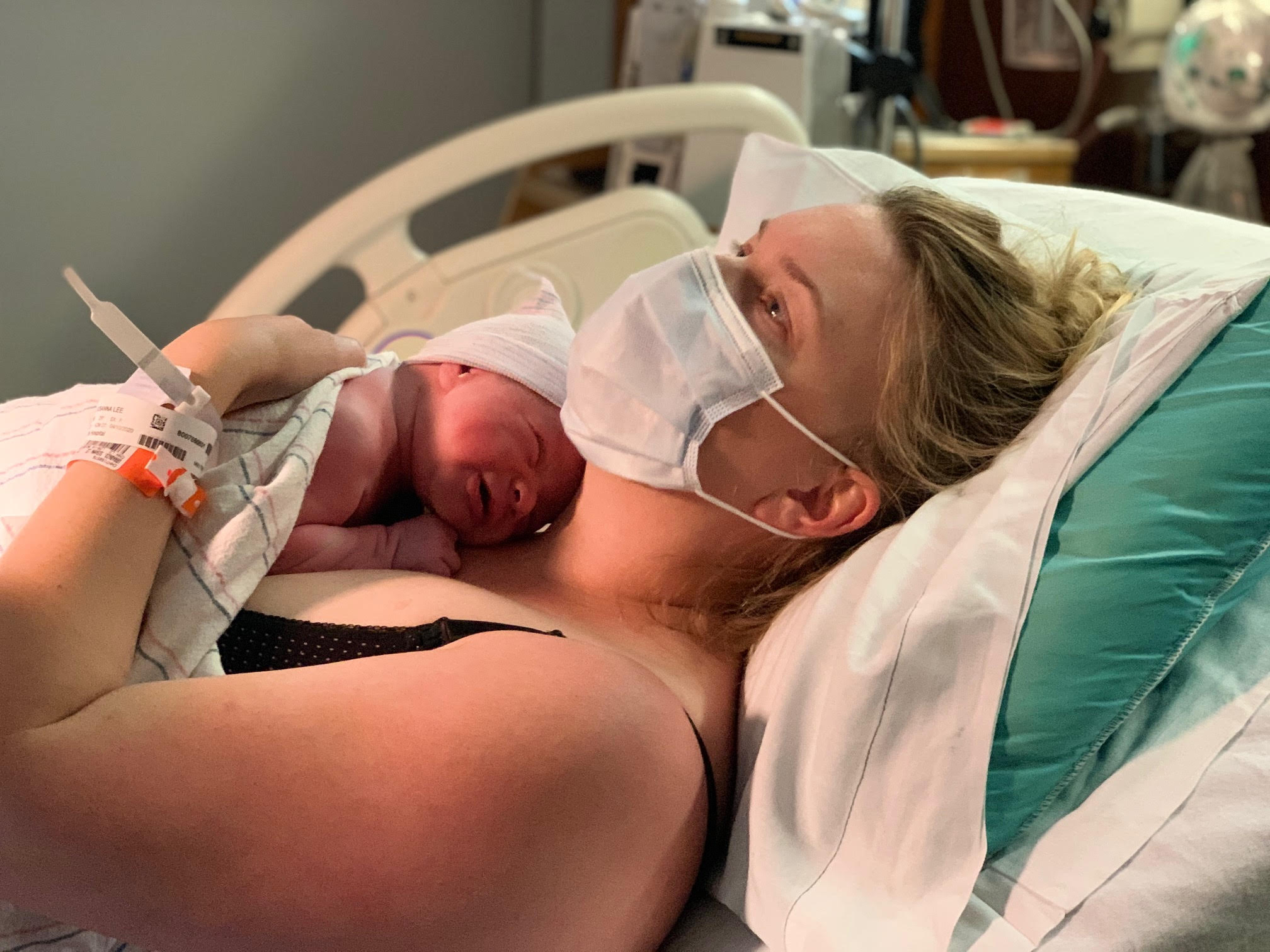 For many women, it’s that element of the unexpected that has become the most stressful. The entire notion of pregnancy and childbirth is unexpected as it is without the added element of Covid-19. “The hardest thing for me has been dealing with the unknown,” says Aimee Krasner Mittleman, who gave birth in April. “Not knowing if I was going to deliver alone, not knowing if it will be safe for me and the baby and how much exposure we will have at the hospital. I also come from a supportive family. My parents cannot be here for the birth. My in-laws have been self quarantined for 20-plus days but we can’t let them come help because we don’t want to expose them after being in the hospital.”
For many women, it’s that element of the unexpected that has become the most stressful. The entire notion of pregnancy and childbirth is unexpected as it is without the added element of Covid-19. “The hardest thing for me has been dealing with the unknown,” says Aimee Krasner Mittleman, who gave birth in April. “Not knowing if I was going to deliver alone, not knowing if it will be safe for me and the baby and how much exposure we will have at the hospital. I also come from a supportive family. My parents cannot be here for the birth. My in-laws have been self quarantined for 20-plus days but we can’t let them come help because we don’t want to expose them after being in the hospital.”
For mamas who have given birth throughout Covid-19, the postpartum period has largely gone from a joyous time filled with friends and family popping by to “meet the baby” to an extended solo experience, minus any help or support from the outside world. If anything, the postpartum period is a time of isolated quarantine as it is, without the added stress of questioning every little whimper, or wondering whether you can even take your new baby outside.
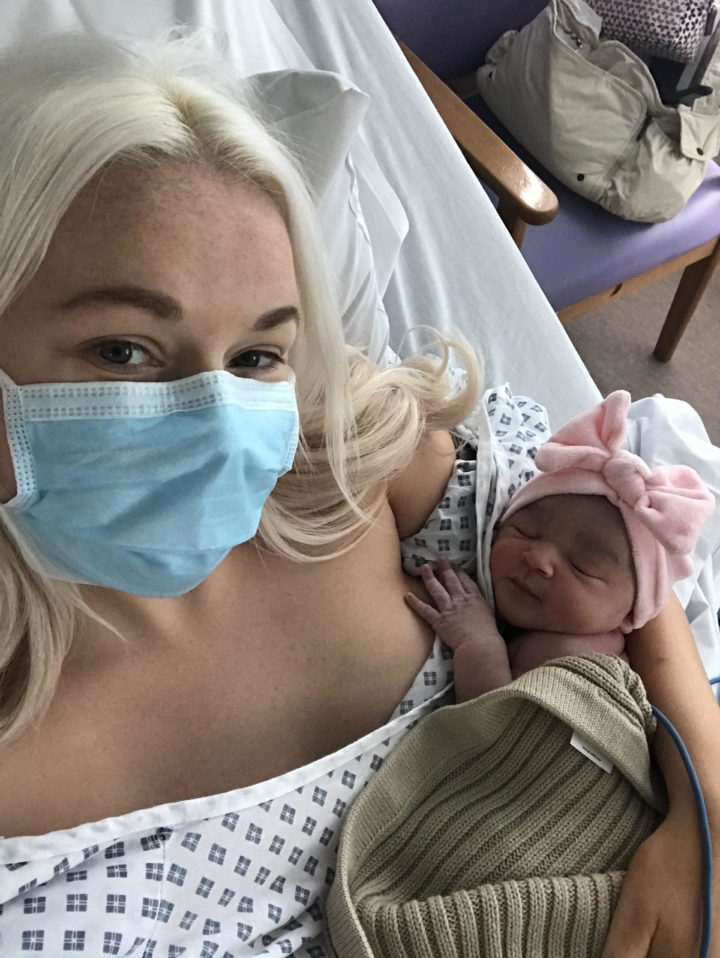
Photo courtesy of Becca Smith
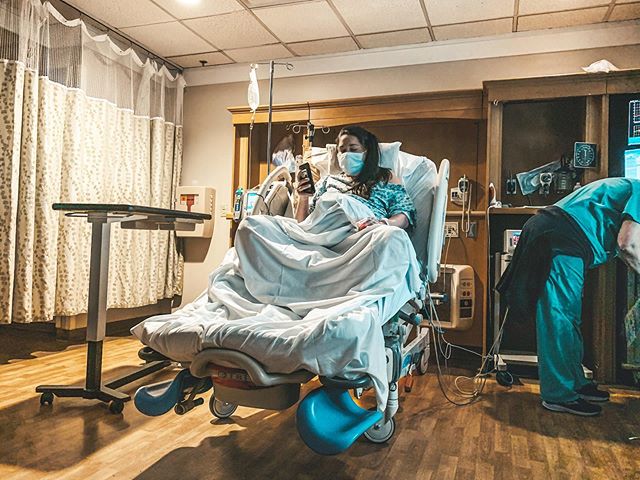
Photo courtesy of @mrsalexandriagibson
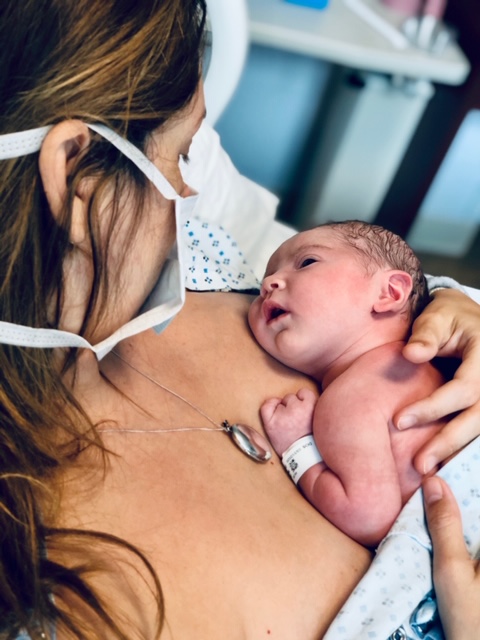
Photo courtesy of Julia Jansch.
“Not knowing if your infant’s immune system will be strong enough to fight the virus certainly increases my paranoia,” says Annie Davis, who gave birth on March 2. “Yes, at the moment, doctors think young kids aren’t getting it severely, but this virus is still very much unknown. We also told my nanny to stay at home, so I now have to look after my newborn and my boisterous two-year-old toddler. I’m beyond the pale of exhaustion with no help. The isolation is very hard.”
Julia Jansch gave birth in late April and equated the last month of her pregnancy with the feeling of being swallowed up by a giant wave in the ocean.
“My panic kicked in a little earlier because with the slight presence of Covid-19 cases in New York at the end of February, my parents (who are in South Africa) and I had to make the painful decision that it was unsafe for them to fly over for the birth,” says Julia, who then canceled her baby shower and began social distancing with her husband. “As our plans de-railed, we looked for some rhyme or reason to the craziness unfolding around us. I had a call with one of my angels, a guru in L.A. called Guru Tej. I howled about not having my mother by my side through this all and the physical presence of my sisterhood that has become so sacred through the years, and her words resonated like a divine message: ‘This is an opportunity for YOU to be the Divine Mother.’ A mental and spiritual shift happened in that moment. It was time to go inwards and take up this invitation to really focus on the nest.”
Covid-19 has made life simpler for us in a way we really needed it. We cook what is in the fridge. We consume less.
Ultimately Julia made the decision to be induced in order to avoid the wavering hospital partner policies. Her doula, Samantha Huggins of Carriage House Birth, was on-hand virtually to ease her stress around the induction and delivery. She describes the hospital setting as eery and quiet with staff members in full masks and PPE gear everywhere she looked.
“The staff at the welcome desk took our temperatures before we did anything,” says Julia. “We were told that if our temperatures were over a certain threshold, my husband would not be able to accompany me and I would have to deliver in a demarcated part of the hospital. They also told us that through our stay they would continue to take our temperatures regularly. He was just over normal and there was a brief exchange where after the receptionist indicated with eye-contact, we’ll let this one pass.”
Following her birth, Julia and her husband left the hospital with their new daughter in tow, to experience their fourth trimester in total isolation, which – according to Julia – is perhaps the silver lining to all of the devastation Covid-19 has brought on. “Covid-19 has made life simpler for us in a way we really needed it,” says Julia. “We cook what is in the fridge. We consume less. We spend time in the present and we give thanks daily for what we have. I feel humbled by this experience, but I also feel humbled by Covid-19. Though physically apart, I feel closer to my family and my friends and I feel connected to the world by a shared empathy. My experience was impacted by the virus, yes, but weirdly enough, I wouldn’t have had it any other way.”
For Caitlin, too, who was able to give birth alongside her husband in the end (he was sent home immediately following the birth), she’s been enjoying the forced downtime. After all, pushing out a baby while wearing a mask and gloves, surrounded by nurses and doctors in full PPE gear was stressful enough. She couldn’t wait to get home, and stay there.
“After my first delivery, I was out taking the baby for walks and meeting friends for lunch, and then I felt like I had trouble recovering later,” Caitlin says. “I never took that initial time to sleep and rest. Now, I can cuddle and swaddle my baby and relax because there’s nothing else to do. No one is coming over. There’s no one to entertain. We’re just living in a nice postpartum cocoon.”
Jenna Blanchard narrowly escaped the Covid-19 hospital crisis. Her new daughter Lena Nell Cheam was born on March 8 at Puget Sound Birth Center in Seattle, Washington, a city which became a major hotbed for the virus at the time. Now that she’s home, she’s soaking up being a mom and trying to let the stress of her pregnancy pass through.
“Every time I breastfeed my daughter, I’m reminded that I am responsible for feeding her, for nourishing her and that I must stay healthy for her,” says Jenna. “It’s one of the greatest responsibilities and gifts women have had to bear, but as I spend the fourth trimester in the midst of Covid-19, it is a responsibility that carries a deeper weight.”
